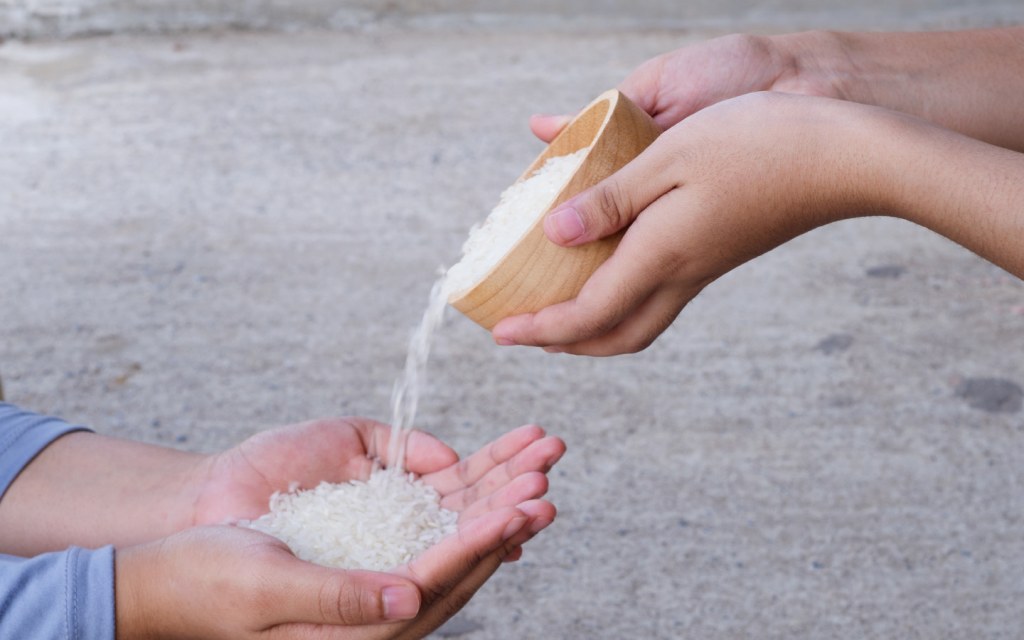Home » Laws & Taxes » Explained: The Rate of Zakat and Deduction At Source
IN THIS POST
– What is Nisab
– Rate of Zakat
– Assets on which Zakat is payable
– Zakat deduction from bank accounts
– Exemption from deduction
– Eligibility to receive Zakat
UPDATE (March 31, 2022):
The State Bank of Pakistan has announced the Nisab for Zakat deduction in 2022. According to the statement released by the Poverty Alleviation and Social Division, the Nisab of Zakat has been set at PKR 88,927 for the current year.
Please note that the banks across Pakistan will deduct Zakat from saving accounts, profit and loss sharing accounts, and other similar accounts that have a balance of PKR 88,927 or more, on the first of Ramadan.
With Ramadan right around the corner, you are bound to hear a lot of questions revolving around how and when to pay Zakat, as most Muslims prefer paying the obligatory charity during the holy month.
Zakat is not only supposed to help the underprivileged and those who can’t afford to fulfil their basic needs. It is also meant to cleanse and purify one’s wealth. In fact, the importance of Zakat can be determined by the fact that it has been deemed one of the five pillars of Islam.
Since it is mandatory on all adult Muslims who earn more than a certain threshold, banks across Pakistan collect Zakat by deducting it directly at the source. It means if you have more money than the set threshold for the year, known as Nisab, the banks are legally responsible to deduct 2.5% of the exceeding amount.
Zakat deduction in Pakistani banks is automatically carried out on the 1st of Ramadan.
In order to further explain the rate of Zakat, the types of bank accounts liable to carry out the yearly deduction and the assets on which Zakat is compulsory, here is a breakdown that might help you out.
What is Nisab?

The word Nisab means the minimum wealth or assets you must own before you are eligible to start paying Zakat. This minimum figure is called the Nisab threshold and you only pay Zakat once you cross it.
Muslims are supposed to pay Zakat one lunar year from the day their wealth exceeded the threshold.
Rate of Zakat

Your Zakat should amount to 2.5% or the 40th portion of the cash and tradable assets you possess above the Nisab. It is to be paid after an entire Islamic year has passed since the acquisition. However, you can also pay it in advance if you have wealth equal to or above Nisab on hand.
The government of Pakistani usually announces the Nisab for each year shortly before Ramadan. It is generally set according to the cash value of 3 ounces (87.48 grams) of gold or 21 ounces (612.36 grams) of silver.
You can also take a look at our guide on calculating Zakat for more information.
On what assets should Zakat be paid?

The list of Zakat-eligible assets includes cash, gold and silver, trading stocks, business income, livestock, produce and land.
However, certain conditions must be met. For starters, the payer should have the complete ownership of the assets. If you only possess something but do not own it, you are not liable to pay Zakat on it. Moreover, the assets must be in excess of your basic necessities. For instance, household items such as furniture, dishware etc. are not considered Zakat-eligible assets – unless you bought them with the intention of investment or sale.
If you’re not involved in agriculture, you are obliged to pay Zakat on the amount of cash you own or have in your savings account, the value of gold or silver jewellery above the mentioned threshold and the value of trading stocks at the given time.
If you have rented out your property, you also need to pay 2.5% Zakat on rental income if it reaches the Nisaab and an entire lunar year has passed since the acquisition.
For salaried people, if your employer deducts provident fund at source, you are not liable to pay Zakat on that amount until it’s released to you.
Furthermore, if you owe a debt to others, calculate and deduct that amount from the total assets on which you are obliged to pay Zakat. These are called liabilities.
Zakat Deduction from Bank Accounts

The government sets the Nisab for Zakat deduction on bank accounts shortly before Ramadan. Banks then collect 2.5% Zakat from all the accounts that exceed this particular balance.
However, not all types of bank accounts are liable to Zakat deductions. In fact, banks can only deduct Zakat from the savings and profit and loss sharing accounts. Meanwhile, current and foreign currency accounts are exempted from this.
Now, some depositors might want to pay their Zakat themselves to someone they know personally. In that case, they have an option to claim exemption and disallow the bank from deducting the amount.
However, you need to file for the exemption on a stamp paper by the 15th of Shabaan each year.
Exemption from Zakat Deduction

Banks are not allowed to carry out compulsory Zakat deductions if:
- The account-holder is non-Muslim and the branch has a written affirmation to verify the claim.
- The account-holder is not a Pakistani citizen and has provided a photocopy of their passport or an equivalent document proving their nationality.
- The account belongs to a company where no less than 50% of the shares belong to non-Muslims or non-Pakistanis. The company would have to file the required attested documentation to prove the fact.
- The account belongs to an individual who has claimed an exemption on the grounds of faith. In that case, they would have to file a declaration or its attested photocopy. This must be done at least 30 days before the Valuation Date.
- The account has been frozen by an established authority.
- The account holder did not have a balance exceeding the Nisab threshold for the entire year. They can file for exemption through the local Zakat Committee at least 15 days before the Zakat Deduction date.
For further details about exemption from Zakat deductions, depositors must contact their respective banks.
Who is Eligible to Receive Zakat?

The recipients of Zakat must not have cash or property above the Nisab threshold.
While you can pay Zakat to your relatives, you cannot give it to your immediate family members, including your parents, grandparents, spouse and children. Moreover, the descendants of the Prophet (Peace Be Upon Him) are also not eligible to receive Zakat.
These are the eight categories of Zakat recipients mentioned in the Holy Quran.
Fuqara: The poor and needy who do not own any assets in excess of basic necessities.
Miskins: The extremely poor people who do not even own enough to fulfil their basic necessities.
Aamileen: The officials responsible for the collection and distribution of Zakat.
Muallafat-ul-Qulub: This refers to underprivileged Muslims. You can give them Zakat for the express purpose of making them more inclined towards Islam.
Fir-riqab: This term stands for ’emancipation of slaves.’ You can pay Zakat to free a person stuck in a contract with a master who would only release them for a fixed sum of money.
Al-Gharimeen: The Muslims who are in debt.
Fi Sabeelillah: For any good deeds that would please Allah.
Ibn-us-Sabil: If a traveller needs money while travelling, they are entitled to receive Zakat.
If you have any queries or suggestions, feel free to drop us a message on blog@zameen.com.
To learn more about Zakat deductions and rates, stay connected to Zameen Blog, the top lifestyle and real estate blog in Pakistan. You can also subscribe to our newsletter on the right to receive the latest updates about construction and property trends in the country.
Update (April 12, 2021): The federal government has announced the Nisab of Zakat for 2021. As per the statement released by the State Bank of Pakistan, the Nisab for the current year has been set at PKR 80,933.
That essentially means people who have more than this amount present in their savings account will have their Zakat deducted at a rate of 2.5 percent.
Update (April 21, 2020): The federal government has announced the Nisab of Zakat for 2020. As per the statement released by the State Bank of Pakistan, the Nisab for the current year has been set at PKR 46,329.



